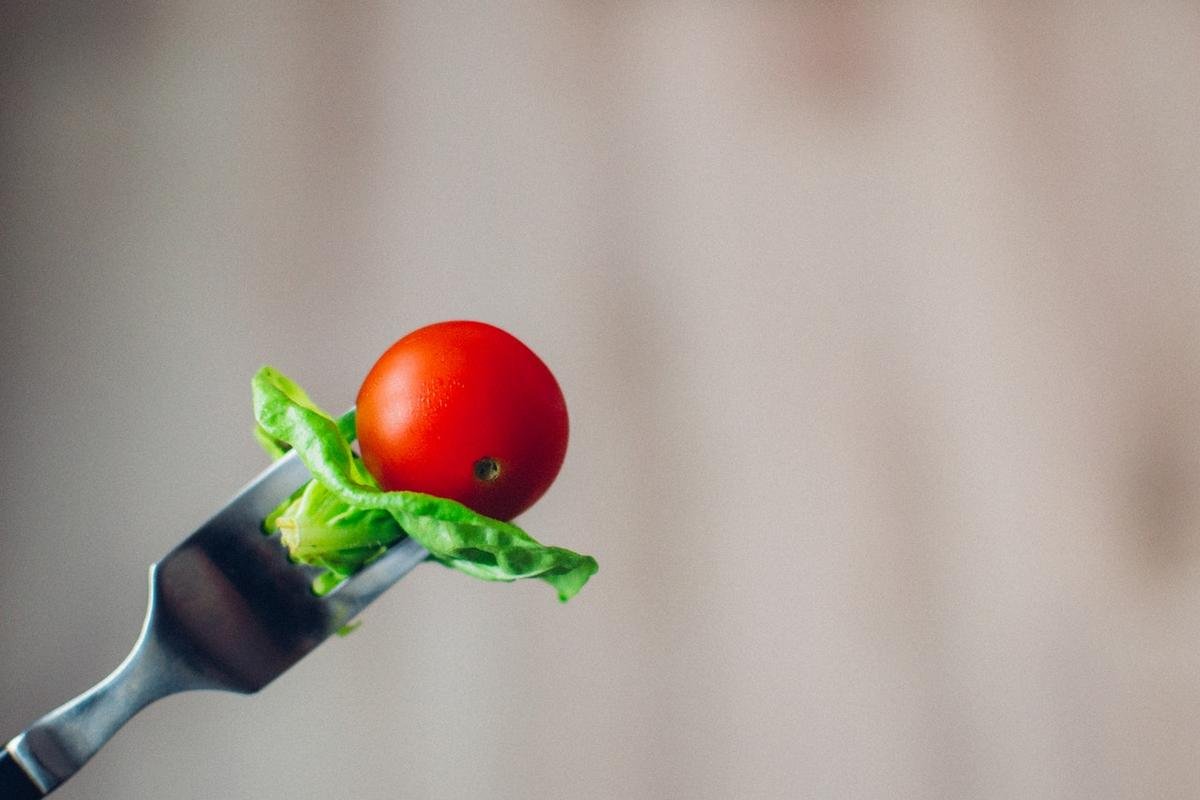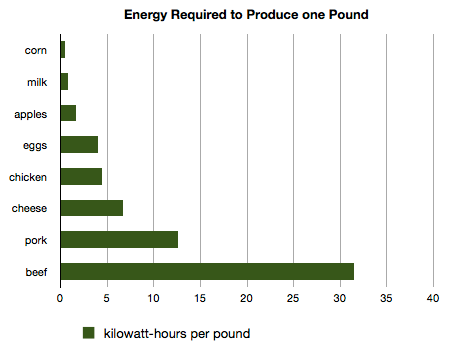A few days ago, @livesustainably asked some pretty tough questions for the Zero Hunger Writing Challenge, including:
“How would you go about solving the hunger problems in our world? Would you attack the excess? Would you focus on growing? How can we supply the variety of foods that consumers demand, or should we be educating about seasonality?” ~ Original Article

I get very overwhelmed when contemplating world wide problems such as poverty, homelessness, and of course, world hunger. I feel powerless and angry and for the longest time, I refused to think about such important questions. I figured I couldn’t make a difference or shoulder the weight of the whole world so why even try?
But as I explained in my introductory post so very long ago,
“I wish to change the world for the better… to create a positive force that sweeps through the people around me. I want to do the most amount of “good” - to volunteer, to stretch out a helping hand, to save lives, and be a role model.”
“But, while I can certainly make an impact, I cannot shoulder the weight of the world. I cannot and I will not take that responsibility. I can only change and improve myself… and my world. So I am going to strive to reduce the negatives in my life and do the least amount of harm. This is my story of personal development and growth as a human being.” ~ Original Article
Now instead of avoiding these difficult questions, I face them head on through my actions. While I may not be able to solve world hunger, I can at least live my life in a manner that shows I do not condone it.
So how do we… how do I… solve world hunger?

First, why do people go hungry? I can think of a few reasons off the top of my head including:
- There is not enough food
- One may not have enough money to buy food
- One may not have the knowledge to grow/produce food
- There is inequal/poor distribution of food globally
- Food is wasted/thrown away instead of eaten
- There are not enough resources (land, water, etc) to grow an adequate amount of food
Each reason can be broken down and analyzed further.
First, is there enough food? There are over 7 BILLION people on planet earth but according to the Huffington post,
“Hunger is caused by poverty and inequality, not scarcity. For the past two decades, the rate of global food production has increased faster than the rate of global population growth. The world already produces more than 1 ½ times enough food to feed everyone on the planet. That’s enough to feed 10 billion people, the population peak we expect by 2050. But the people making less than $2 a day — most of whom are resource-poor farmers cultivating unviably small plots of land — can’t afford to buy this food. ~ Source
So it seems that my second point - poverty - is a large part of hunger. I think a big part of the solution for this is both supporting small business by buying locally (instead of large corporations that may monopolize the industry) and providing the resources to set everyone up for greater success. These resources should be included as a part of our basic education which ties in to my third point.
I think the reform of our education system is necessary in order to help solve this problem (and in solving a bunch of other problems as well but that’s a whole other story). Now I am not a law maker or teacher so I don’t know the best way to provide a beneficial overhaul of the broken system. But here are some of the things that I wish I had learned/experienced in my school days.
The format of a typical school day is ineffective. It’s been proven that developing teenage brains do not function fully/effectively until much later in the morning than when school normally begins (check out this 2016 article by The Conversation for more info on this). Also, the length of the school day (not even including homework!) is more detrimentalto a student’s ability to learn than it is beneficial.
Of course homeschooling is a potential answer to this problem for some people. It just doesn’t work for everyone. So schools need to change things up and I think there are a few things we can try.
- School days should start later and be shorter - more like a college student’s schedule.
- Instead of a “lecture from textbook” format, students should learn from experience and apprenticeships.
- Allow students to create their own schedule and criteria.
- Each school should have their own garden that students work in to produce food for cafeteria lunches.
- Instead of focusing on test results and letter grades, the “grading system” should be eliminated altogether. This would also reduce stress and anxiety levels in hormonal teenagers which would benefit mental health.
Here are some other thought provoking ideas to change education by TeachThought.
After we tackle education, we can move on to poor distribution of food. You see, as we learned earlier, there is enough food for everyone but not everyone eats. That’s because some countries have a plethora while others have a deficit. Why? Well, there are a bunch of reasons and a bunch of arguments against each reason, as well as a bunch of potential solutions. What makes the most sense to me is the fixing the food market by localization of food-growth and purchase.
Next, my fourth point and a big part of fixing the food market is to stop wasting food. Up to 40% of food in the U.S. is never eaten according to the NRDC. We live in a wasteful society where if a apple is bruised or a carrot is twisted, it’s thrown away. I don’t know how to go about doing this without promoting abuse of the system, but changing a restaurant’s or business’s regulations about what food they can/cannot serve is a part of the problem. It’s amazing how much food is thrown away because legally they cannot serve it anymore even though the average individual would eat it. Also, I think it would be a good idea for businesses to be rewarded for composting or donating “old” and “unsold” food to food trucks or shelters.
A huge part of food waste also comes from transportation. Most produce has gone bad by the time it’s reached the grocery store and even more food goes bad by the times it reaches your plate! The less distance it has to reach your table, the better. Buying locally and within season is the best way for people to help this problem. I love farm-to-table restaurants which are thankfully becoming more mainstream.
Finally, my last point was that there may not be enough resources to produce enough food. We now know this isn’t true because the world is currently able to produce enough food for everyone… but I believe we do so in unsustainable means. “Sustainable” doesn’t just mean “green” or “eco-friendly” - it means ABLE TO BE MAINTAINED. Something that will work long-term, not short-term. So while we are able to produce enough, we do so by using up more resources than we need to or should.
Industrialized farming is a part of the problem and I believe permaculture is a part of the solution. Also, I know this is not a popular choice for many but vegetarian or vegan diets reduce the amount of resources (land, water, energy, etc) needed to provide food.

Chart from TreeHugger
Now I am NOT suggesting everyone go vegetarian or vegan. I simply recommend that the people who are already interested in doing so take the first step towards transitioning to that lifestyle!
Another way to maximize ROI (food gained from resources used) is to fully utilize our current resources to their maximum potential. What I mean by this is reforming our public lands (parks, school property, DNR land, etc) to permaculture food forests. Instead of investing tax dollars into the maintenance of these lands with “pretty” landscaping, we should promote the use of functional landscaping… fruit trees, vegetables, and more. That way public land can be used to grow food for the public.
On a smaller scale, the #FoodisFree (@foodisfree) initiative goes along with this thought process. Instead of wasteful grassy lawns, replace your yard with a bountiful garden and share with others!
Wow. That was a lot. But I’m in the final stretch - how will little ole’ me be able to do all of these things?!
- I plan to continue eliminating red meat from my diet and eventually (hopefully) transition to a vegetarian diet.
- I plan to begin buying local and in-season produce more often.
- I plan to support small business, such as individuals from the Farmer’s Market or the local Co-op, with my purchases.
- I plan on growing/preserving more of my own food and sharing excess with friends and family.
- I plan on joining the #FoodIsFree initiative by giving away excess seeds or saplings from my “scrap” garden.
- I plan on sharing what I learn with others (via Steemit and Dtube) in order to promote useful education.
- I plan on transforming Wild Rose Acres to a permaculture food forest homestead in order to maximize the potential of the land.
- I plan on composting all of my household food waste to use in my garden for future food growth.
What can you do to help end world hunger? Join the competition and share your answer(s) to start the conversation!
First photo by @livesustainably. Second photo from Pexels and used under the CC0 license. Chart from TreeHugger. Quotes (in order of appearance) from @livesustainably, @kiaraantonoviche, and HuffingtonPost. Additional resources from The Conversation, TeachThought, and NRDC. #FoodIsFree referenced.

Join the HomesteadersOnline Discord community today!
Proud passenger of the Steemit EcoTrain!
